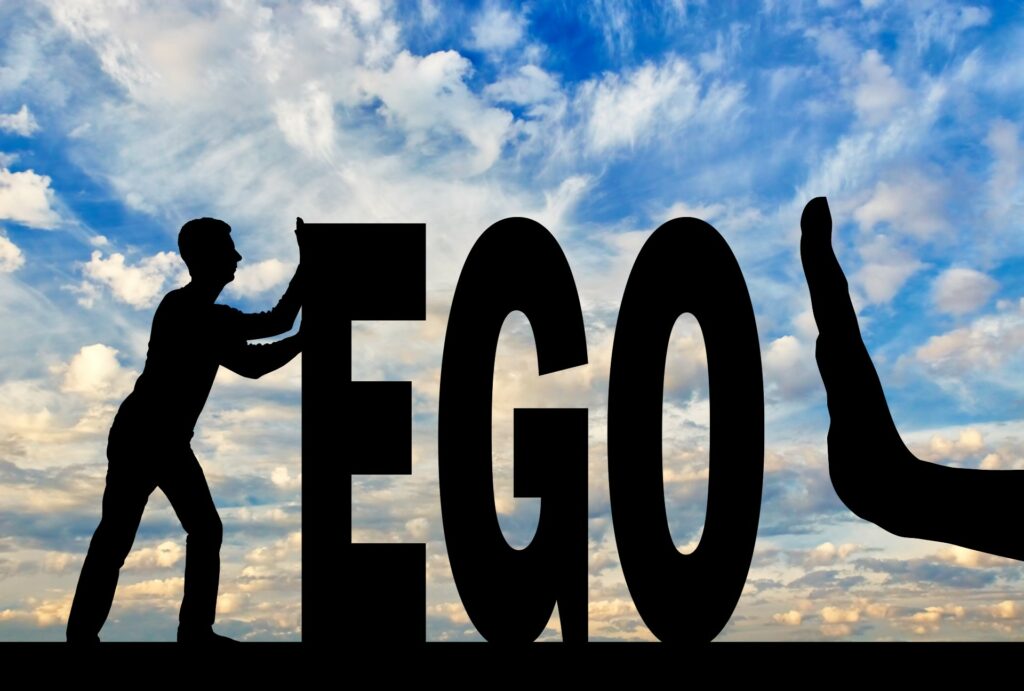The ego often gets a bad rap. However, in martial arts, the ego is a resource for students and instructors throughout the journey. Since our ego is how we see ourselves and think of ourselves when it comes to our value relative to the rest of the world, an unchecked ego can hinder a martial arts student or instructor. However, a healthy ego builds confidence, which allows students to achieve higher because the ego keeps negative self-talk at bay. The ego must sometimes be built up; other times, it needs to be put aside – the unique inner-focus martial arts offer trains students and instructors to harness their ego and know the difference.
Help or Hinder? The Ego Can Do Both
The ego is an individual’s sense of self-importance or self-esteem in relation to the world. A healthy ego provides individuals with confidence. Confidence pushes people to achieve tasks and goals that may otherwise be hindered by negative self-talk. Many people claim that confidence is an attractive quality in others, and often leaders have confidence that causes others to follow. People also tend to support and offer their help to someone who seems confident. It is for this reason that instructors in martial arts must have a healthy ego because they serve as influential role models for other students in training. A confident martial arts instructor naturally draws students to them because of their knowledge and confidence in delivering instruction and correction.
An unhealthy ego, although it will still likely end in achieving higher goals, may cause social awkwardness and hinder you in social settings. An unhealthy ego is considered arrogant, full of self, and not worth the time. Instructors with an unhealthy ego may cause students in training to feel inadequate or unable to succeed, which is the opposite of what martial arts are meant to teach. When looking for a studio, observing or meeting instructors is always wise. It is evident when watching a class if the instructor’s ego is a healthy or unhealthy one.
Positive Self-View Is Critical to Healthy Ego
Martial arts students and instructors must recognize that a healthy ego begins with one’s view of oneself. If individuals can establish a positive and healthy view of themselves, they are on track to a healthy ego. The balance is making sure and being mindful that one is not forcing their ego onto others, which pushes people away. An over-confident person with an unhealthy ego can cause others to feel attacked, especially if the other person struggles with a positive and healthy view of themselves. Martial arts students and instructors who thrive have incredible self-awareness, can reign in their egos, remain humble, and adapt to different situations.
Students and Their Egos in Martial Arts
Students who come to martial arts training want to learn martial arts. Although some claim it is for the physical aspect, martial arts are unique because you can’t separate mind and body – there are always mental benefits when training in martial arts. Students often learn self-worth and develop an ego during their martial arts journey because it is a natural occurrence.
Students who come to martial arts from another studio or may have an inflated view of their skill level may be in for some humility. However, humility is not wrong; the martial arts journey is a marathon, not a sprint. Although students vary in their dedication to practicing outside the studio, it is often underestimated how long it takes to achieve the next belt. Students may experience a blow to their ego. Still, a professional and healthy studio with qualified instructors who have experienced it firsthand can guide students and encourage them through their doubts and fears.
Since martial arts is an individual sport, some students get stuck and need help accepting that the instructors and other students also have priority. Unhealthy egos make martial arts all about them, and they have no interest in how to help others in their group. The solo nature of martial arts training challenges students as they develop egos because each student must purposefully choose to think about others. A student whose ego goes unchecked may find that other students do not want to train or spar with them. For students to have the most beneficial journey in martial arts, they must keep their egos in check.
Over-inflated egos cause conflict and ultimately cause more destruction. Skilled instructors should be trained to handle these ego-growing pains for martial arts students. Studios like SwiftKick offer students a family-friendly atmosphere and staff some of the best instructors in San Diego County. Martial arts students must recognize the value of developing their ego in a healthy way to become the best version of themselves and represent martial arts in the most favorable light to the rest of the community and world.

